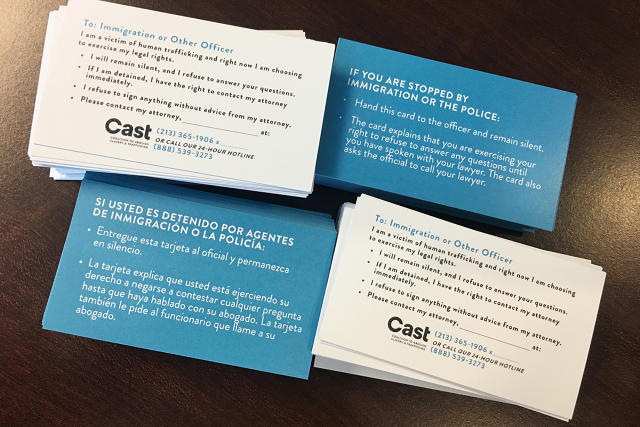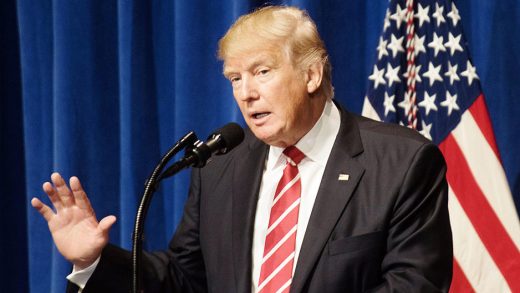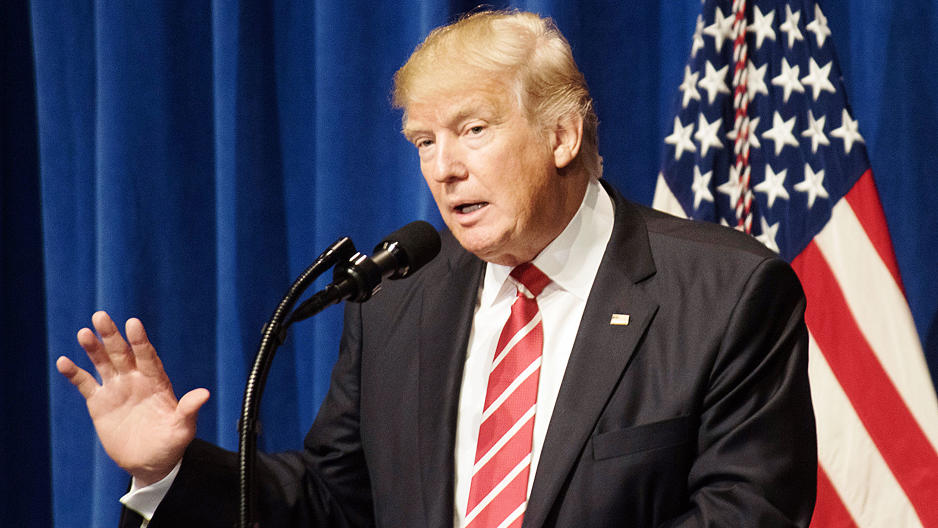What The Travel Ban Would Mean For Victims Of Human Trafficking
The president’s executive order barring citizens from seven Muslim-majority countries has caused a lot of chaos over the last two weeks. And while the order has been officially halted by a court order, the president has threatened to take the case to the Supreme Court, making the future of the order still uncertain.
There has been a lot of coverage of those affected by the ban, including many professionals working in the U.S. One vulnerable group affected by the ban that hasn’t gotten as much attention are victims of human trafficking.
Human trafficking is essentially a form of modern slavery, in which people are coerced or lured into unpaid or underpaid labor (including, but not limited to, sex work). The U.N.’s Global Initiative to Fight Human Trafficking estimates that there are 2.5 million victims of human trafficking worldwide, with the bulk of those in Asia, Latin America, the Middle East, and Africa. (Some other estimates put that number at many millions more.) But fully 270,000—over 10%—of such victims are estimated to be in industrialized countries like the U.S. In the subcategory of sex trafficking alone, it is estimated that some 50,000 women and girls are brought into the U.S. each year.
A U.S.-born citizen can be trafficked, but more often, a trafficking victim in the U.S. is a foreign-born person lured to the U.S. with promises of a “good job,” which really turns out to be a position of indentured servitude. It’s these foreign-born victims of human trafficking in the U.S. who stand to be adversely affected by Trump’s executive orders.
Shani Adess is the senior supervising attorney at the Immigration Law Project of Safe Horizon, which provides legal services to victims of human trafficking. Adess offers an example of how Trump’s travel ban could affect someone who has survived trafficking.
The Trafficking Victims Protection Act of 2000 and subsequent laws were designed to combat human trafficking, as well as to extend a helping hand to victims of human trafficking in the U.S. Under these laws, if you can prove that you’re a victim of human trafficking, you can be entitled to a number of benefits, including a visa to stay in the U.S., not only for yourself, but also potentially for your spouse and children. So if you’re a foreign-born trafficking victim who has escaped your situation, you can work to prosecute your traffickers in U.S. courts, thereby preventing them from victimizing other people.
But under Trump’s executive order, trafficking victims from the seven banned countries would have to choose between being separated from their families and fighting their cases. Says Adess: “I would have to sit here as a victim of trafficking and choose: Am I going to be separated from my kids or not? Maybe I’m cooperating with the FBI, maybe I have a civil case open to get money for the work I did when I was trafficked.” Maybe, too, the victim is benefiting from the medical treatment and psychological care she is entitled to under the Trafficking Victims Protection Act. “But all of that would require me to be here in the U.S.,” continues Adess. “Now I have to choose whether I’m going to have that, or my children”—that is, by returning to her home country, where she was first lured or coerced into her trafficking situation to begin with.
Another way victims of trafficking could be harmed by Trump’s policies, say advocates, relates to the fact that such victims have often been coerced into doing illegal acts (like prostitution). Trump’s order “Enhancing Public Safety in the Interior of the United States” casts a wide net on people to prioritize for deportation. While the Obama administration had favored focusing on undocumented immigrants who posed a threat to “national security, border security, and public safety,” Trump’s recent order explicitly singles out “aliens who have been convicted of any criminal offense,” but also those who “have been charged with any criminal offense, where such charge has not been resolved.”
Easily imagined scenarios like these, says Adess, underscore “how incredibly poorly thought out and crafted these executive orders are.”
Ultimately, though, the greatest effects of his orders and rhetoric may be cultural, rather than, strictly speaking, legal. Kay Buck, the CEO of the anti-trafficking organization CAST (Coalition to Abolish Slavery and Trafficking), says that Trump’s orders have already had a chilling effect on people who have escaped trafficking and were in the process of claiming benefits or testifying in prosecutions of their traffickers.

Because Trump’s order also singles out “aliens” who “have abused any program related to receipt of public benefits,” some of CAST’s client base are wondering whether claiming any benefits they are entitled to might somehow make them a target. Likewise, there is some fear that collaborating in a prosecution could increase their visibility.
Buck and the lawyers she works with have so far been able to persuade victims of human trafficking to continue to seek the benefits they’re entitled to and prosecute their traffickers.
But the sense of panic is hard to shake. And Buck only has information about those who have already escaped their trafficking situation. What about those currently in a trafficking situation who were about to call for help, but are suddenly more fearful than before Trump’s orders? “One of the most effective tools that traffickers use to maintain control over someone and make them fearful of seeking help—besides violence—is the threat of the legal system, of law enforcement, or the threat of deportation back to a country where they may have valid fears of returning to,” says Adess.
Even if the block on the travel ban remains in place, the executive order has created a climate where people in trafficking situations feel even more powerless. “It’s horrible,” says Buck of what she sees written in the faces of her clients. “I’m seeing a level of fear that we’ve never seen before.”
Fast Company , Read Full Story
(34)














